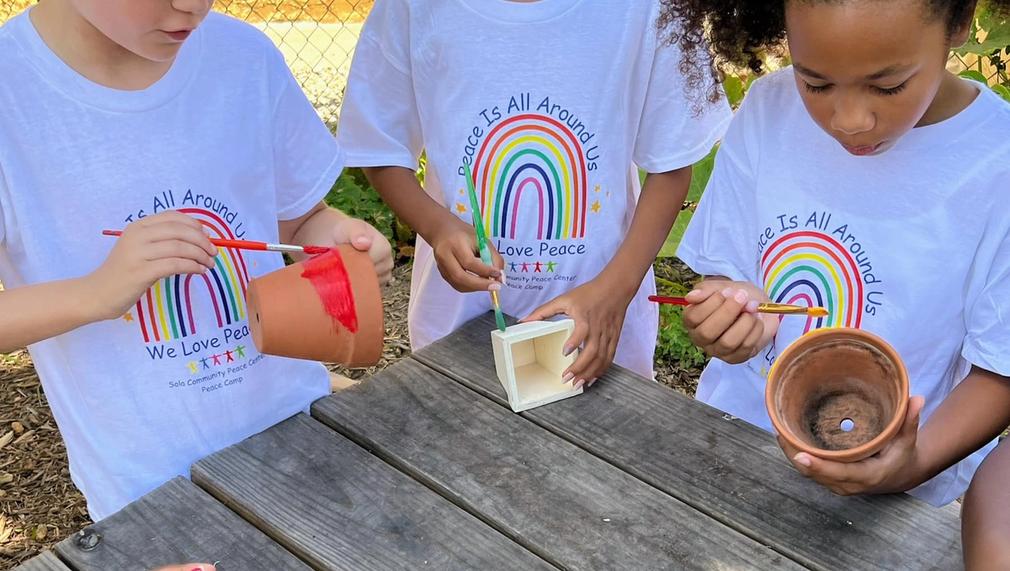Communities of Gardens in Service of Community Collaboration
The "Community of Gardens" project aims to create accessible green spaces and communities of gardens, empowering residents to overcome barriers to gardening, and fostering strong social support networks. This initiative leverages the concept of narrative alignment in occupational reconstruction through participatory action research (PAR) to improve mental and physical health, food security, and community well-being, particularly in underserved areas like South Central LA.

What is the primary issue area that your application will impact?
Green space, park access, and trees
In what stage of innovation is this project, program, or initiative?
Pilot or new project, program, or initiative (testing or implementing a new idea)
What is your understanding of the issue that you are seeking to address?
Young people we serve in South Central LA have identified three primary barriers: engagement in gardening, lack of access to green space, and lack of access to healthy food (food desert). We understand this issue firsthand because it is our community that informs us of what needs to be done. With this information SOLA is seeking to fill the gaps community members not just in South Central, but around Los Angeles have been voting for. We recognize that the community members we serve face numerous barriers, including time constraints, lack of gardening knowledge, family responsibilities, environmental concerns, and limited monetary resources. Our project is designed with a person-centered approach, ensuring that the people we serve are at the core of our efforts. We aim to tackle issues such as access to green space, community gardens, mental health support, social support networks, and food insecurity.
Describe the project, program, or initiative this grant will support to address the issue.
Our innovative “Community of Gardens” initiative is for every Angeleno, no matter the barrier they may face, we have worked to accommodate them because our project is designed in a way that anyone attempting to grow anything and engage in gardening in any way (for example on personal land, at a community garden, and/or in containers on patios/balconies/window sills) will be able to find support, while building community. The aspiration of this project is to develop community and improve engagement with growing food as a way to enhance health and well-being. This process is centered on participatory action research (PAR) as we are helping a subset of community residents learn a process to address the issues identified in Q6. The desired outcome consists of mobilizing information and resources for gardening to community residents and creating a community between those engaging in gardening who are associated with this project. The impact of this project will be that more people in this community will engage in gardening, and those who are gardening will feel connected to this network of gardeners. Despite systemic barriers, the project aims to positively impact community well-being by generating solutions to problems that are sustainable and driven by community members. We want to equip residents with the knowledge that they need to either grow at home or join us in our efforts at our community garden the Peace Pocket Park.
Describe how Los Angeles County will be different if your work is successful.
We are pioneering a model in Los Angeles that aims to significantly expand access to green spaces and gardening opportunities beyond traditional community garden models. Rather than a few scattered gardens, our project envisions widespread impact across Los Angeles County that meets the true needs of Angelenos. Successful implementation will result in increased access to green space, and enhanced community engagement as residents will have more opportunities to connect with those who share gardening practices. Improved overall health and well-being as gardening activities lead to better physical and mental health. Food security and access to healthy food will be improved as participants will be provided with a source of produce through their gardening, the Peace Pocket Park, and the food pantry. In addition, our project aims to provide skill development opportunities, environmental benefits, support for vulnerable Angelenos, and community-led solutions and empowerment.
What evidence do you have that this project, program, or initiative is or will be successful, and how will you define and measure success?
We will utilize performance metrics, financial metrics, and measuring the alignment of our mission to the project to measure and define success. First, we will measure people participating, media posts, events, garden plants distributed, and communication points between the participants and SOLA. We are looking to build relationships community members enhance social connections and participation in gardening and as a result their feelings of hope and health. We will measure this data through collection methods such as surveys, focus groups, observation, and documentation. Surveys amongst the community members in which we serve are very important as they help us get a feel for what the community needs, not what we think they need. Focus groups amongst our staff where we will reflect and understand to what extent we are reaching our goals. Observation and documentation will constantly be happening as this helps our team make improvements to the project and make informed decisions.
Approximately how many people will be impacted by this project, program, or initiative?
Direct Impact: 300.0
Indirect Impact: 3,000.0